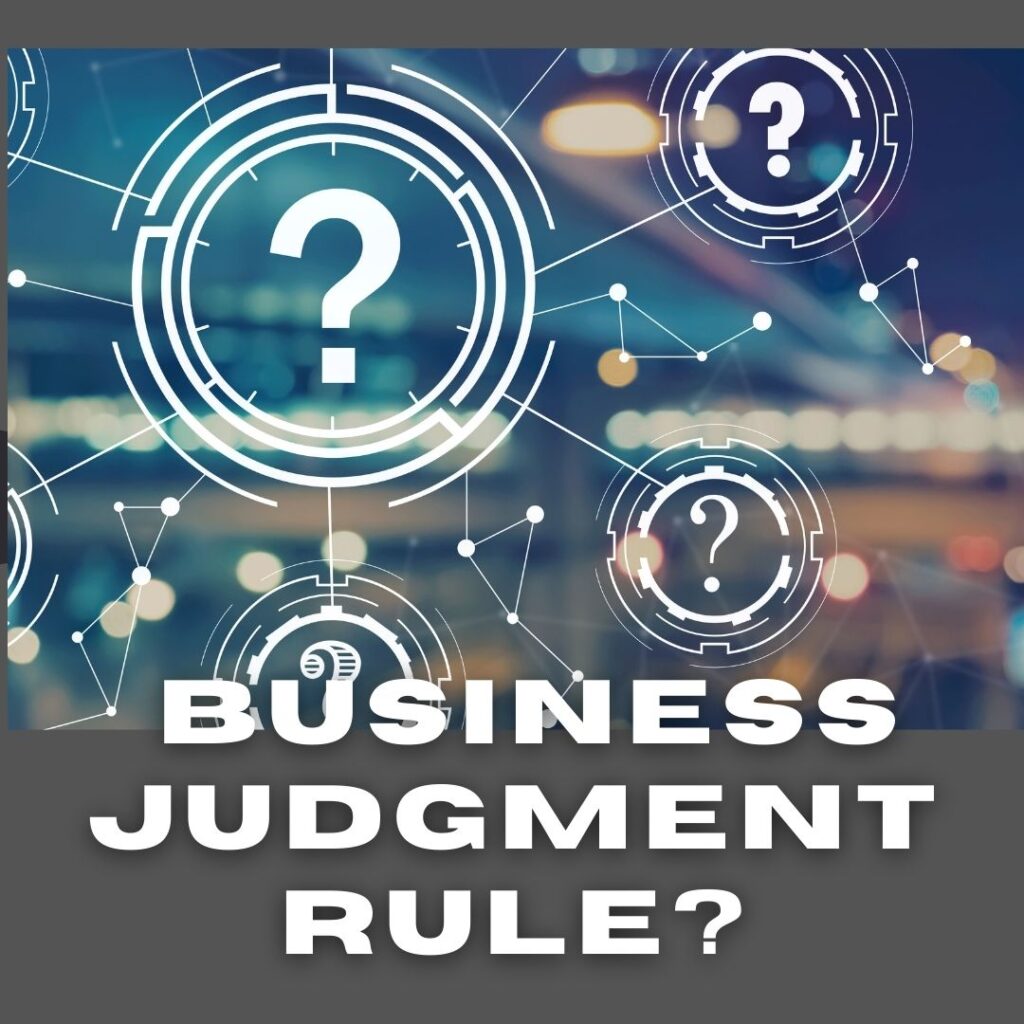If you serve on the board of directors of a corporation or if you are a shareholder in a corporation, you may have come across the “business judgment rule”. What is the business judgment rule and who is it meant to protect?
Generally speaking, the business of a corporation is committed to its officers and directors. The business judgment rule grants a degree of deference to the decisions of corporate directors and was developed by state and federal courts to protect boards of directors against shareholder claims that the board made unprofitable business decisions. The rule is a presumption protecting conduct by directors that can be attributed to any rational business purpose. The rule means that as long as the disinterested director(s) made an informed decision, in good faith, without an abuse of discretion, he or she will not be liable for corporate losses resulting from his or her decision.
Thus, if you are a director, the business judgment rule will provide you protections under certain circumstances. If you are a shareholder or other director who may have been harmed by a decision of a director, you need to carefully consider whether that decision falls within the purview of the business judgment rule before asserting such claims.
The nuances of this area of law require a knowledgeable attorney to evaluate the merits of or defenses of your claims in light of the business judgment rule.

The material contained herein is provided for informational purposes only and is not legal advice, nor is it a substitute for obtaining legal advice from an attorney. Each situation is unique, and you should not act or rely on any information contained herein without seeking the advice of an experienced attorney. All information contained in links are the property of the linked site.

